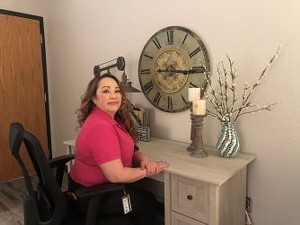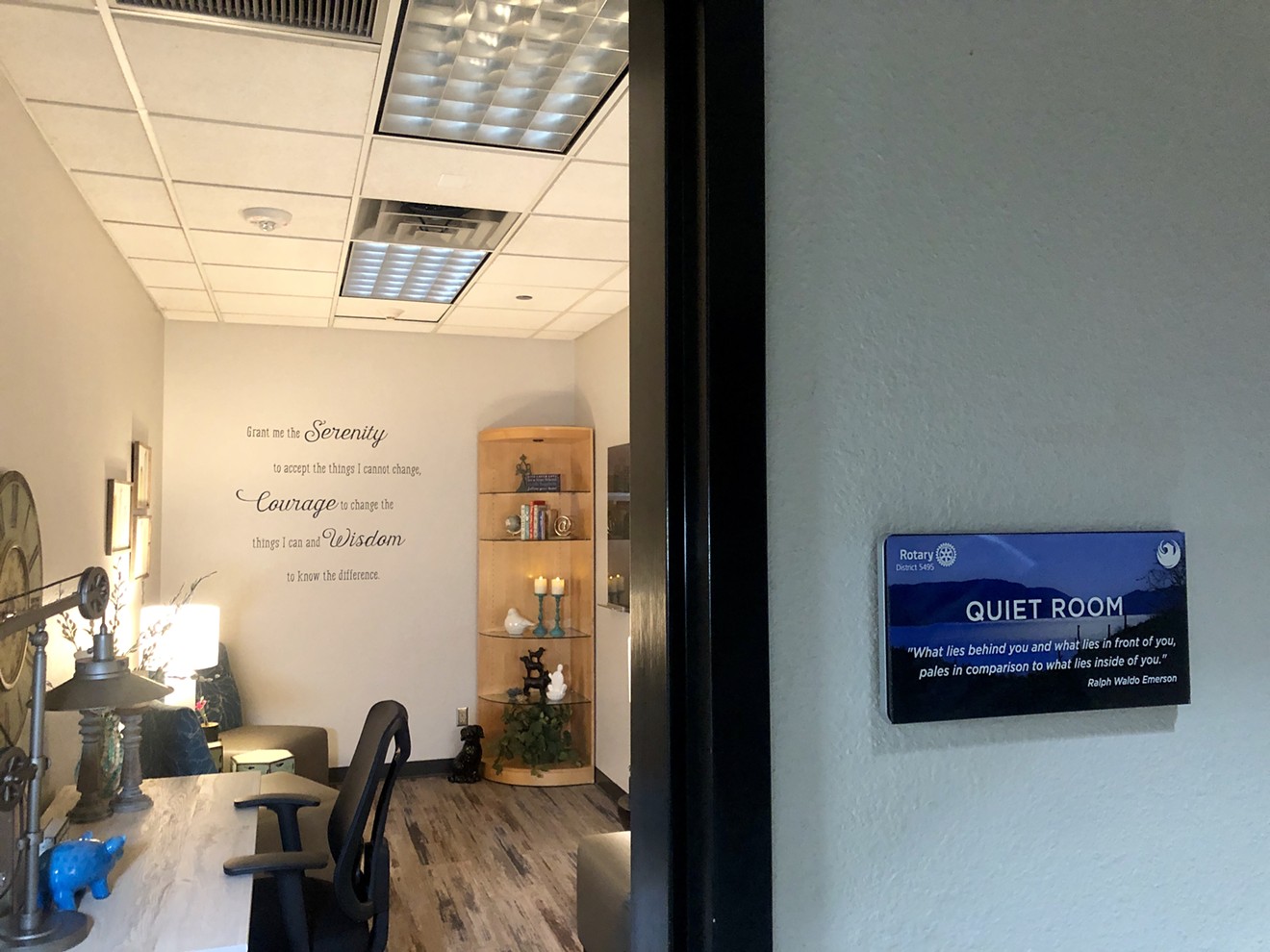Alva, a 911 call operator and radio dispatcher for the Phoenix Fire Department, didn’t realize until the end of the call that the grandmother’s lack of emotion was a sign of defeat. The woman, unable to wrest the child away from the dog that day in 2017, watched her grandson die.
Alva requested the rest of the day off and eventually sought counseling, recognizing how the call had affected her emotionally. “I was upset, and really shaken,” she said. As a representative for the local employees’ union, she’s since become involved in a task force on post-traumatic stress disorder to shed light on the problem in her department.
But the nature of the dispatch job, experts say, is more often to just power through tough calls, setting aside personal feelings to assist with the next emergency.
“The public safety telecommunicator has to go zero to 60 and start giving those life-saving instructions,” said Mark Reddish, senior counsel for APCO International, an organization representing emergency call center employees worldwide. “They hang up, and then they answer the next one.”
The emotional toll that such an environment can have on both police and fire department staffers is one reason the Phoenix Police Department unveiled a new “Quiet Room” for its communications operators on Tuesday. Adorned with watercolor canvases, fake candles and calming quotes on the walls, the space is the result of a $5,000 copy room renovation funded by a local Rotary club. Though the police and fire departments have long had break rooms, the emphasis on a peaceful haven designed specifically for dispatchers’ needs is new.
Talking to reporters at the event, Police Chief Jeri Williams and Mayor Kate Gallego celebrated how the room will serve as a retreat for employees to decompress or recoup from traumatic calls.
But while 911 operators and dispatchers representing the employees’ union say a quiet room is a step in the right direction, they say what they really need is money to hire more staff and better recognition of the job’s impact on mental health, both of which they’ve requested for years.
“The quiet rooms are a wonderful way to reduce stress and help with the tragedy and horror of the calls we get,” said Frank Piccioli, president of the local chapter of the American Federation of State, County and Municipal Employees. “But let’s not forget we have experienced severe understaffing, mandated overtime, and increased call traffic for the past 10 years.”
Both the police and fire department dispatch offices have remained understaffed as Phoenix’s population has grown, Piccioli says. Police dispatchers in the city take more than 2 million calls a year, while fire dispatchers take about 1.5 million, according to representatives from both offices.
The fire department, which is allowed a quota of around 80 communications operators, would like to hire at least 30 more, but hasn’t been granted the funding, according to union representative and lead dispatcher Joe Witt.
The police department, which Chief Jeri Williams said currently employs 262 communications operators, is currently hiring for 25 more. But Piccioli says the police department’s dispatch center has struggled to recruit and retain enough employees, in part because it doesn’t pay a competitive enough wage.
“If Amazon is hiring people in their call center at $20 an hour to deal with someone’s package and the city of Phoenix is paying $18 an hour to deal with your dying mother, obviously something needs to change,” he said.“If Amazon is hiring people in their call center at $20 an hour to deal with someone’s package and the City of Phoenix is paying $18 an hour to deal with your dying mother, obviously something needs to change."
tweet this
In reality, the minimum salary for new employees is just over $19 an hour, according to advertisements on the city’s website. New hires must undergo a polygraph test and a drug screening, which have dissuaded applicants from the job, Piccioli said.
He said he’s tried and failed to secure more funding for both the fire and police dispatch centers.
“I spoke to the city manager and was told that there just wasn’t funding for it this year,” Piccioli said.
City spokesman Matthew Heil said in a statement that the city included funding for other fire department improvements last year, and that dispatch funding is on its radar for consideration in the upcoming fiscal year.

Rosenda Mendoza, a 911 operator and dispatcher with the Phoenix Police Department, said the calls that involve kids are the hardest.
Ali Swenson
Meanwhile, though, communications operators speaking for the union say they’ve watched fellow employees struggle.
The shortage has led to mandated overtime hours that can keep existing employees an extra four hours at the end of their 10-hour shifts, according to Dorie Levy, a police dispatcher and a steward for the union.
"That can be really exhausting, and it can lead to burnout really fast," she said.
Levy, who has spent 18 years in the police dispatch center, said she’s seen coworkers blame themselves for incidents, to the point where they’ve had to take unpaid time off or even get transferred to different departments. She said when employees suffer PTSD symptoms and need time off, they typically use vacation or sick time because there’s no structure for paid time off otherwise.
“The city needs to realize we need to earn a better wage,” Levy said. “We need to have better mental health counseling and possibly paid time off when you’ve had a really traumatic call or incident.”
Another problem is that call takers and dispatchers aren’t classified as first responders, but instead as clerical workers, which in some states has precluded them from getting the same benefits as police who are physically deployed to a crime scene.
But Texas passed a law in June reclassifying dispatch employees as first responders, which will give them access to additional trainings, liability protections, and in some cases, additional benefits.
In Arizona, the Craig Tiger Act passed last year provides up to 36 counseling visits for first responders who need it, and Phoenix has included police and fire dispatchers in those benefits, Heil said.“Nobody really thinks about dispatchers,” Alva said. “We’re the first people that you hear and we’re the last ones that you think about."
tweet this
A national bill to reclassify dispatchers as first responders, which counts Arizona Congressmen Greg Stanton and Raul Grijalva among its co-sponsors, is currently stalled in the Senate.
Communications operators say they experience similar stress and trauma to other first responders, even if it’s not recognized.
For Alva, the stress crept in gradually after the grandmother's 2017 call.
"I started to notice I was very impatient, and I was always frustrated, and I was always angry," she said. "It would be my day off and I would have this anxiety."
After she sought help, she became a peer counselor for her coworkers. She said she’s hopeful that the city’s dedication of a quiet room and its support of a PTSD task force means more changes are coming.
“Nobody really thinks about dispatchers,” Alva said. “We’re the first people that you hear and we’re the last ones that you think about. I’m glad the city is acknowledging that this could be an issue and they’re willing to take steps to make sure that we’re all healthy.”












